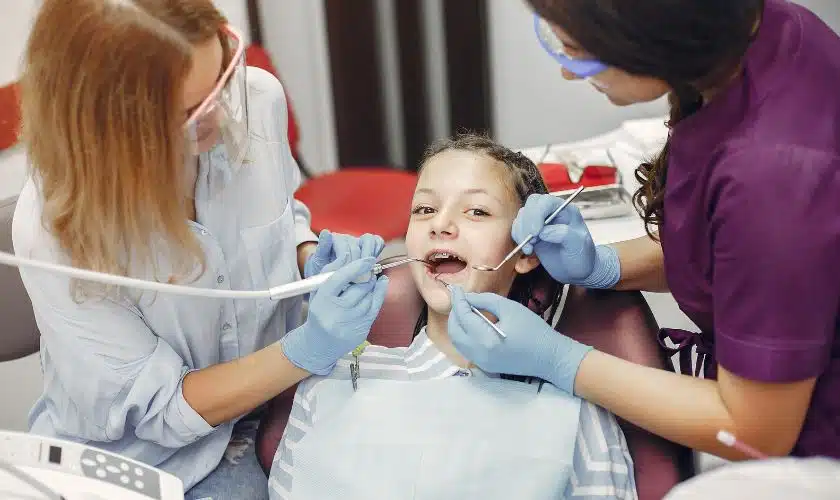Amidst the journey of childhood, maintaining good oral hygiene is essential for healthy smiles. However, a significant challenge persists—the widespread occurrence of cavities among young children. To combat this issue effectively, it’s vital to enlist the expertise of children’s dental specialists. These professionals are more than just dentists; they are invaluable allies in the fight against tooth decay. Equipped with specialized knowledge and child-friendly techniques, they play a crucial role in a child’s healthcare team. But how exactly can a children dental specialist aid in cavity prevention? This article will explore the ways.
The Role of a Pediatric Dentist in Cavity Prevention
Pediatric dentists are the guardians of children’s dental health. Specialized in treating younger patients, these experts undergo additional training to handle the unique dental needs of infants, toddlers, children, and adolescents, including those with special health requirements. Their role extends beyond mere treatment; they focus on preventive care, educating children and parents alike on the best practices for achieving and maintaining oral health.
Identifying Early Signs of Tooth Decay in Children
The early detection of cavities can significantly affect a child’s overall health and the development of their permanent teeth. These dentists are adept at spotting the early signs of tooth decay, which often go unnoticed by parents. These signs might include white spots on the teeth, mild discoloration, and sensitivity to cold or sweet foods. Recognizing these symptoms early can lead to prompt treatment and prevent more serious issues from developing.
Preventive Measures: Techniques and Treatments
They employ a variety of techniques to prevent tooth decay. Fluoride treatments, dental sealants, and the appropriate use of toothpaste and mouthwash are standard tools in their arsenal. Moreover, these specialists offer advice on diet, recommending foods that are less likely to contribute to decay and identifying habits such as bottle-feeding at night or frequent snacking that may increase the risk of cavities. Furthermore, they often conduct thorough examinations to detect early signs of decay or dental issues, allowing for prompt intervention and preventive measures.
Regular Check-ups: Frequency and Importance
Regular dental check-ups are vital in maintaining a child’s oral health and should start as soon as the first tooth appears. These visits allow the dentist to keep an eye on how your child’s teeth and gums are growing and developing. Regular check-ups help spot cavities before they become severe and play a critical role in building a child’s comfort and familiarity with dental care settings, easing dental anxiety and fostering a positive attitude toward oral health.
Educational Tools for Kids
Pediatric dentists often use creative educational tools to teach children about oral hygiene. Storybooks, apps, and reward systems like “tooth tokens” for positive dental habits can make the process engaging and fun. Additionally, they may employ interactive games or colorful charts to illustrate the importance of oral hygiene. These hands-on educational tools not only educate children about proper dental care but also empower them to take responsibility for their oral health from a young age.
Ultimately, the goal of visiting a children dental specialistis to prevent cavities and instill lifelong healthy dental habits. With the support of these specialists, children learn to take control of their oral health from a young age, ensuring they grow up with strong, healthy teeth.


